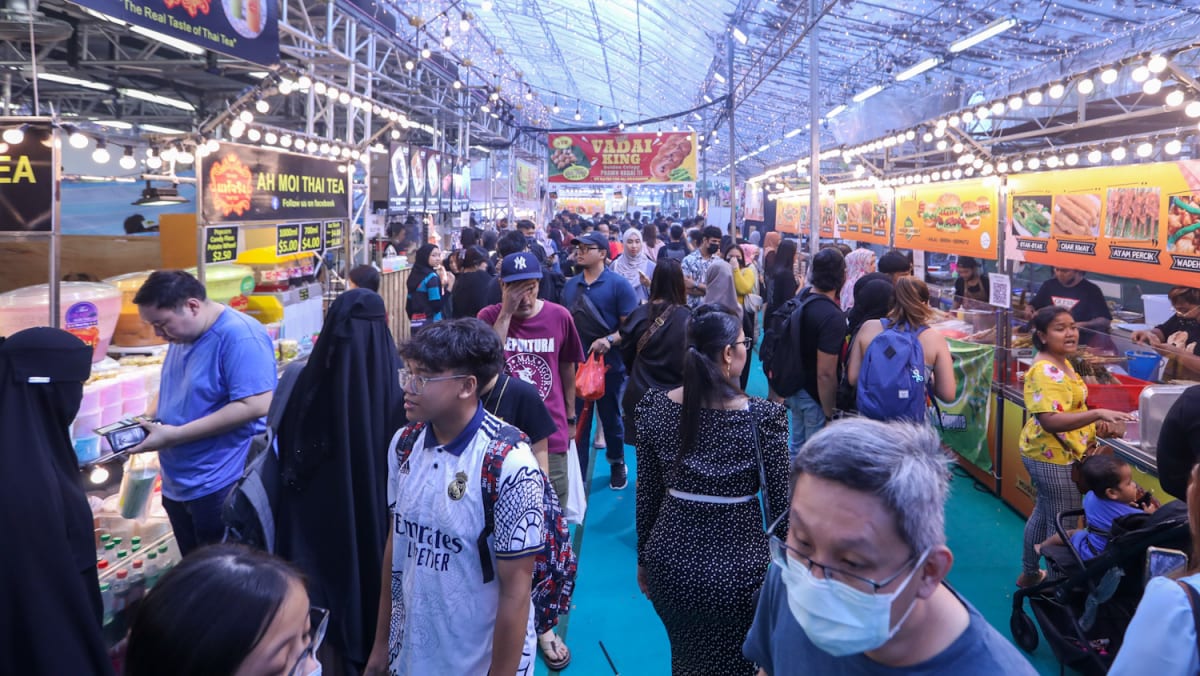
SINGAPORE — Despite complaints from some vendors and criticism from netizens regarding the high rental costs at the Geylang Serai Ramadan Bazaar, the contracted organizer defends itself by saying that its stalls are “within market rental rates.”
The bazaar started on 17 March and will last till 21 April.
Local media previously reported that some vendors struggled with the “high bids needed to secure a space,” with rent ranging from S$16,000 to S$19,000 for one unit.
Kf Seetoh, founder of Makansutra, had earlier quipped that the Geylang Serai Ramadan Bazaar has “easily the world’s most expensive pasar malam stalls”.
All food and beverage stallholders are also subject to incidental costs of between S$30 and S$3,100, including utilities, water supply, fans, coolers, tables, and chairs.
The organiser said that they have incurred additional costs to “enhance visitors’ experience by curating concept zones” and setting up over 1,000 dining seats and tables at the bazaar. Additionally, they “increased security measures” by deploying more auxiliary police officers, closed-circuit televisions, and concrete blocks.
The bazaar is jointly organized by a consortium of S-Lite Event Support, TLK Trade Fair and Events, and Enniche Global Trading.
A spokesperson from Enniche Global Trading said, “It starts from top down. It begins with the tender value. What the tender value turns out to be will determine distributed costs.”
The main organiser of the bazaar is actually the People’s Association (PA), and it tendered out the organisation of the bazaar to the consortium via a GeBiz tender at an award value of S$2.26 million.
The total cost came up to nearly S$2.5 million, the organiser said.
Stallholders regret participating
Despite the assurance of the organizer, CNA interviewed some stallholders and published their response on Thursday (6 Apr).
Kebab seller Mr Hasan told CNA that he regrets taking up a stall at the bazaar. Pointing to the stalls next to his, he said, “We’re all losing money. (We) cannot cover costs, cannot even cover rent.”
Over at the neighbouring stall selling Ramly burgers, a worker echoed the same sentiment, “We regret taking it this year.” He said that it was okay in the previous years. Mr Hasan is paying S$25,000 in rent, while his neighbour is paying S$20,000.
Mr Muhd Ridzuan, who runs a stall selling burgers and fried snacks, said that at the 2019 bazaar, he saw snaking queues unlike this year.
Another kebab seller, Mr Essam Ezz, estimated that 85 per cent of his earnings will go towards paying rent. He is paying about S$30,000 – three times what he would pay at other night markets, he said.
Mdm Nisha Samsudeen of a fried snacks stall said her family paid S$16,000 in rent and was not sure if they could turn a profit. “Maybe we can pay for supplies, workers and rent, but (my family) may not draw a salary,” she said.
The Straits Times also reported how the owner of the Pasha Turkish Kebab stall owner at the Bazaar said he was promised exclusivity to run a stall in the tent next to Onan Road if he paid $24,000. However, another kebab shop has popped up less than 50m from his stall. Prices for kebabs at both stalls start from S$5.
The other kebab seller in the tent, The Botak BBQ & Grill, was also quoted a rental of $24,000 and told verbally that there would be no other competitor there.
Other stalls selling the same items told ST that they were not informed that they could not sell their food, but had been threatened by the organizers not to do so. Since the agreement did not have any such conditions, they continued selling the items.
Nearly 30 per cent of the 700 stalls at the bazaar were earlier reported to be empty this year. However, Wisma Geylang Serai later said that the take-up rate was 95 per cent for food and beverage booths, and 80 per cent for retail stalls.
According to the tender document from PA, the total number of live-cooked food stalls that require permits from the Singapore Food Agency (SFA), e.g. Burger Ramlee, Kebab, shall not exceed 150 stalls. There is, however, no restriction on the number of non-live cooked food stalls.
On top of the competition between stalls selling similar food, it was also reported that many other Ramadan bazaars are happening across Singapore and traffic is diluted due to this.
Two stallholders interviewed by CNA, however, said that the bazaar is going well for them. They attributed it to their marketing efforts. They said they use social media to promote their stalls.
MP Muhammad Faishal Ibrahim, the grassroots adviser at Geylang Serai, wrote in an Instagram post saying that more than 2 million visitors have visited the bazaar. “We are already on set to be on record of having the largest number of people coming to a Ramadan bazaar in Singapore,” said Assoc Prof Faishal, who is also Minister of State for Home Affairs and National Development.




